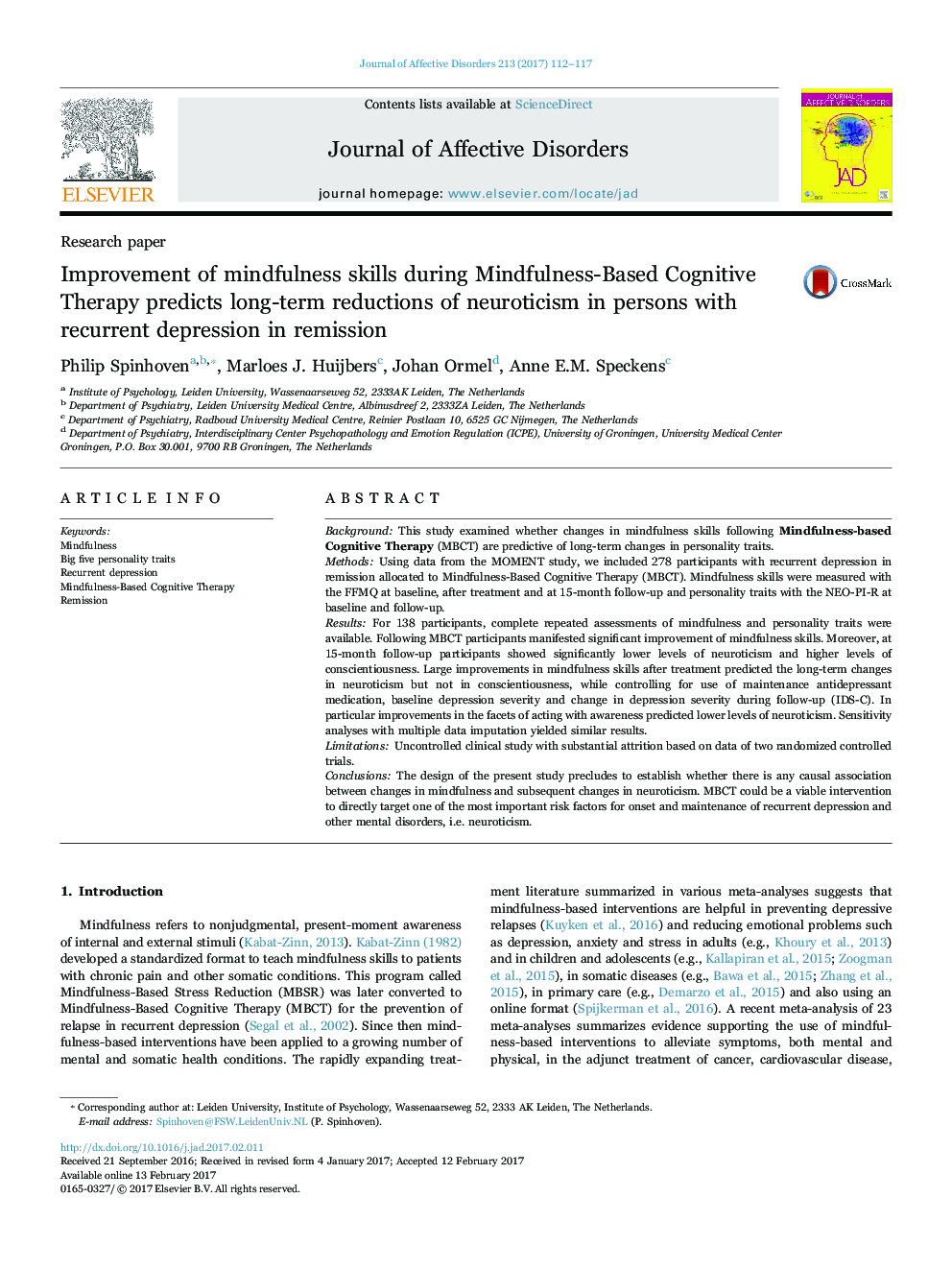| کد مقاله | کد نشریه | سال انتشار | مقاله انگلیسی | نسخه تمام متن |
|---|---|---|---|---|
| 5722234 | 1608112 | 2017 | 6 صفحه PDF | دانلود رایگان |
- Following MBCT, participants manifested significant improvements in mindfulness skills.
- At 15-month follow-up, participants showed lower levels of neuroticism.
- At follow-up, participants also showed higher levels of extraversion and conscientiousness.
- Improvements in mindfulness skills predicted subsequent changes in personality traits.
- The mindfulness facets of describing and acting with awareness were most predictive.
BackgroundThis study examined whether changes in mindfulness skills following Mindfulness-based Cognitive Therapy (MBCT) are predictive of long-term changes in personality traits.MethodsUsing data from the MOMENT study, we included 278 participants with recurrent depression in remission allocated to Mindfulness-Based Cognitive Therapy (MBCT). Mindfulness skills were measured with the FFMQ at baseline, after treatment and at 15-month follow-up and personality traits with the NEO-PI-R at baseline and follow-up.ResultsFor 138 participants, complete repeated assessments of mindfulness and personality traits were available. Following MBCT participants manifested significant improvement of mindfulness skills. Moreover, at 15-month follow-up participants showed significantly lower levels of neuroticism and higher levels of conscientiousness. Large improvements in mindfulness skills after treatment predicted the long-term changes in neuroticism but not in conscientiousness, while controlling for use of maintenance antidepressant medication, baseline depression severity and change in depression severity during follow-up (IDS-C). In particular improvements in the facets of acting with awareness predicted lower levels of neuroticism. Sensitivity analyses with multiple data imputation yielded similar results.LimitationsUncontrolled clinical study with substantial attrition based on data of two randomized controlled trials.ConclusionsThe design of the present study precludes to establish whether there is any causal association between changes in mindfulness and subsequent changes in neuroticism. MBCT could be a viable intervention to directly target one of the most important risk factors for onset and maintenance of recurrent depression and other mental disorders, i.e. neuroticism.
Journal: Journal of Affective Disorders - Volume 213, 15 April 2017, Pages 112-117
